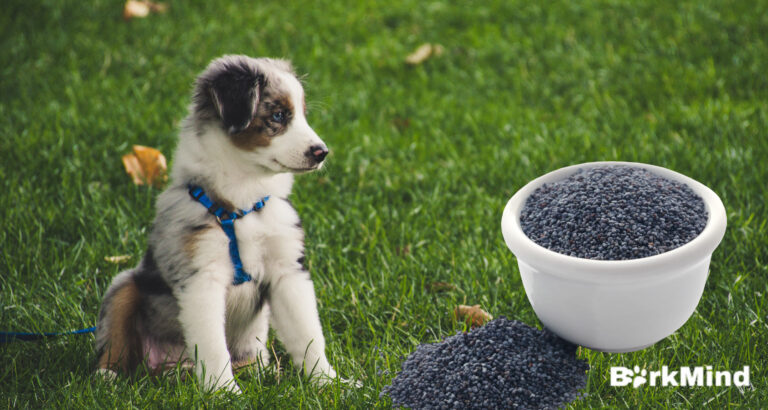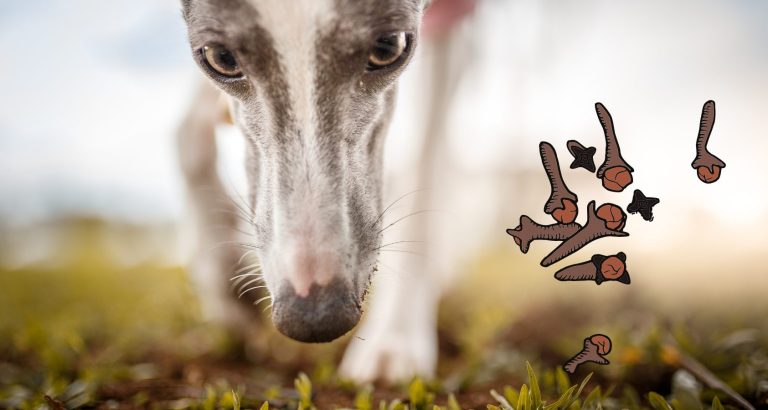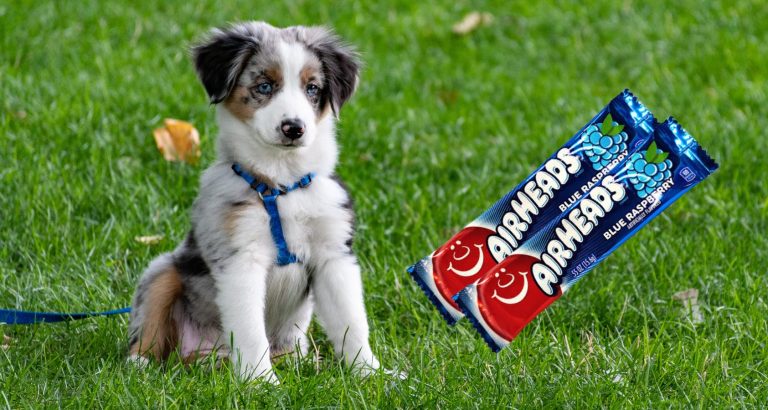Is Vinegar Safe For Dogs? | Full Guide
Last updated on March 20th, 2023 at 10:57 pm
Reading Time: 8 minutesThis post may contain affiliate links. If you click and buy we may make a commission, at no additional charge to you.
Can Dogs Eat Vinegar?
We all use Vinegar in our cooking and baking. This acetic acid solution is used to add flavors and remove stains. Vinegar sounds worrying, especially in homes with pets, as they might accidentally lick or drink it, and you think to yourself, ‘Can dogs have vinegar?’ In this article, we will discuss everything you need to know about vinegary foods.
Quick Answer
Yes. Vinegar is safe and effective to deal with various issues that dogs can experience. Vinegar can be used to relieve digestion problems, urinary tract infections and improve their immune response.
Thus, add vinegar to your dog’s diet but not without getting into the mentioned details. Here you will find types of vinegar for dogs and the best-serving ideas to keep in moderation. Additionally, you will also learn about the benefits and risks of vinegar in dogs’ diet.
So let’s dive in!
Is Vinegar Harmful to Dogs – Yes or No!
Having a pet entails a certain amount of responsibility. When it comes to dogs, it’s crucial to be aware of human foods that might harm them. It begs the question of whether vinegar is harmful to dogs. Is it safe to include vinegar in your dog’s diet? The good news is that vinegar is pretty safe for dogs.
Vinegar is safe to consume by dogs, as long as it is pure and unprocessed. There are many health benefits of consuming vinegar, such as the ability to fight bacteria, yeast, and other parasites. Now there are different types of vinegar.
There are two main vinegars that are commonly used, which include:
- Apple cider vinegar
- White vinegar
Apple Cider Vinegar
Apple cider vinegar is the healthiest in the vinegar family for your dog. ACV (Apple Cider Vinegar) is beneficial to your dog’s health. In your dog’s diet, Apple cider vinegar may help boost the immune system.
Dogs will be able to digest food better and have a better coat. Allergies will be avoided on a dog’s body as well. Apple cider vinegar decreases inflammation by balancing the pH balance of your pet’s body.
Caution
The pH of your dog’s body plays an integral part in their overall health. Because vinegar is acidic, you should be careful while feeding it to your pet. It’s critical to dilute the vinegar with water before giving it to your pet. To get the diluted vinegar, we are required about 50% water.
White Vinegar
Dogs can safely consume distilled white vinegar. Although it has an unpleasant smell, distilled white vinegar and apple cider vinegar are harmless and edible for pets. To clean your dog, you can prepare your white vinegar shampoo.
Caution
The water-to-vinegar ratio is the most vital element to consider when feeding vinegar to dogs. It can be harmful to dogs’ health if the proportion is off and the vinegar is too acidic for them. Vinegar is generally safe for your pet dog. It has numerous advantages, but too much of it can be harmful like anything else.
Can Dogs Have Vinegar in their Diet?
Vinegar is a natural cure for a variety of dog health issues. Although it is expected that your dog dislikes the odor of vinegar, it can be a valuable option for your pet’s health.
You will be amazed to know that vinegar can do wonders for your dog if given correctly. Your dogs’ digestion directly improves and he gets a boost in the appetite. Many dogs are either stubborn about eating or have indigestion issues that make them starved for longer. Vinegar stimulates breakdowns of proteins and fats, so it is best to add it to your dog’s life.
Additionally, vinegar also helps in the detoxification of internal organs and can even reduce muscle pain and hot spots.
Why is Vinegar Toxic To Some Dogs Even Though It’s Technically Safe?
Avoid giving vinegar to dogs with sensitive stomachs. Unless approved by a vet.
Dogs have very sensitive stomachs. Anything that is acidic (like vinegar) will cause them discomfort and diarrhea. If your dog ingests vinegar, and they have a super sensitive stomach. Chances are you will notice your dog constantly going to the bathroom and feeling bloated.
Vinegar is high in bacteria that are bad for dogs, so they will get tummy aches and diarrhea. The high acidity of vinegar can be harmful to dogs with stomach problems as it burns their esophagus and stomach lining.
How to Feed Vinegar to Dogs?
It’s important to know how to feed your dog vinegar when giving him.
- You can put vinegar solution in your dog’s water bowl, whether apple cider vinegar or white vinegar. Make sure the vinegar is diluted before starting.
- Since there’s a risk your dog won’t like the vinegar, it’s better to keep some clean water in a separate dish nearby. Your dog can drink the water if it changes its mind.
- Sprinkling a few drops of vinegar on dogs’ meals is also a good serving idea.
Benefits of Vinegar for Dogs
Vinegar may seem strange for your dogs, but it provides many benefits. It’s a safe and reliable way to deal with various issues your dog can encounter. Vinegar can be used to cure minor skin irritations, prevent ear infections, and even improve the fragrance of your dog.
- Vinegar Helps to Treat Urinary Tract Infections
Infections of the urinary tract in dogs can be treated with vinegar. However, it would be best to determine the pH of your pet’s urine before trying a vinegar remedy in the first step.
If the dog’s urine pH is above 7, then you treat it with Apple Cider Vinegar. It can reduce the PH and dissolve the crystals, but if pH is less than 7, avoid using it because it can worsen the issue.
Treating a urinary tract infection at home can be harmful since it can quickly evolve from a superficial bladder infection to a kidney infection. So, keep visiting your vet and have a discussion about it.
- Relieves Itchy Skin
Apple cider vinegar, or ACV, has antibacterial, antifungal, and antiseptic properties that work primarily on itchy places caused by bed bugs. It also works as a natural repellent for those annoying little creatures.
Unless your dog’s skin is injured, the calming enzymes in apple cider vinegar can provide relief. To avoid stinging, dilute the apple cider vinegar if your dog has sensitive hot spots or itchy insect bites that are open.

- Vinegar Helps in the Cleaning Your Dog’s Ears
Vinegar removes wax, helps remove microorganisms, and restores the pH balance required to keep fungal infections at bay. So it’s beneficial to a dog’s ear and can certainly help clean it. Acid takes the lead, with antibacterial properties giving a follow-up punch.
– To dilute vinegar, combine it with water. Use cotton balls to clean the ear, soak balls in the solution , and clean your dog’s ears. If you mix vinegar in a dog’s ear canal, it can lead to inflammation. Be very careful when doing this.
- Vinegar is Overall Healthy For Dogs
Vinegar improves digestion and immunity, which maintains the internal organs healthy. It can also help with muscle soreness, as well as blisters. Overall it’s a healthy acid for dogs.
However, most times with benefits come also risk factors that need to be kept in mind.
Risks of Giving Vinegar to Your Dog
Like anything else, vinegar can give a tough time to your dog. Be careful when giving your dog vinegar. Keep these risk factors in mind and try best to avoid them.
- Avoid Feeding Too Much Vinegar
Even though vinegar is usually harmless for dogs, there’s a chance they’ll react adversely to them. Vinegar is acid in its pure state. It suggests that a dog shouldn’t consume too much vinegar.
If your pet’s body already has excessive acid, adding vinegar to his diet could be harmful. Before feeding vinegar to your pet, you must first determine the pH level in his blood. Treating your dog well is a smart move.
- Take Your Dog to the Vet
It’s best to be safe to take your dog to the veterinarian if your dog shows any signs of illness after eating vinegar. If the dog’s blood already has too much acid in it, using vinegar in food and drink might cause vomiting, diarrhea, and other digestive problems.
If you detect any of these symptoms, take them to the vet to ensure vinegar wasn’t the cause.
- Avoid Using Vinegar for Dogs with Kidney Issues
It’s best to avoid vinegar if your dog already has kidney problems. Kidney problems can cause a more acidic pH level in your pet’s body. Urine strips are the most accurate technique to check your dog’s pH level.
Urine strips can test the pH level of a dog’s urine and determine whether vinegar is a good option or not.
Don’t Apply Vinegar to Dog’s Cuts and Wounds
Keep vinegar away from your dog’s eyes due to its acidic nature. Also, avoid applying vinegar to fresh cuts or wounds on your pet’s skin because it can cause burning pain. A dog’s health will get better from this natural vinegar treatment. However, you should be aware of this natural remedy’s pros and cons.
A pet’s health can be harmed by too much vinegar. If you feed vinegar to your dog regularly, it can hurt the dog’s skin and overall health. Your dogs may get itchy, dry skin. It’s wise to stop using vinegar for dogs if you see any of this.
Here’s a video of 5 ways Apple Cider Vinegar can help your dog. Watch it, very informative.
5 Surprising Uses of Vinegar for Dogs
- Acetic acid, a part of vinegar, is found in some veterinarian-prescribed products. Ear cleansers, wipes or shampoos have also been demonstrated to help treat ear and skin infections.
- These products are designed especially for these uses and contain active ingredients in the right proportions for maximum safety and efficacy. While these products are effective, they are exclusively for external use and should be used only as directed.
- Spray the diluted vinegar solution on the dog’s paws and fur before bringing them out. It will prevent germs and other insects out of their body.
- You can also use a small quantity of vinegar to sprinkle over your dog’s food. However, your dog will hate the smell of vinegar. But you can overlook this as this solution will provide multiple benefits to their skin and body.
- Dogs have a superb sense of smell, which makes their noses extremely sensitive, and one of the smells they dislike is vinegar. As a result, it can be a very effective deterrent for keeping your dog away from furniture and other items that you wish to keep secure. But, vinegar should be used with caution because it might irritate or hurt your dog.
Conclusion – Can Dogs Eat Vinegar?
Dogs can have vinegar, but there is a thin line between healthy and unhealthy side, and you need to be very cautious not to cross it for your dog’s well-being.
The typical reaction of dogs when given vinegar is that they refuse to eat it. As a result, before adding this ingredient to your dog’s diet or healthcare routine, first, you should visit a veterinarian. Ask them to check the dog’s blood pH level and then add vinegar to his diet.
About The Author
I'm a content writer and researcher. But bottom line, I loveee animals. I had my first animal which was a guinea pig at age 8. Later had a bunny, dog and a lot, a lot of fish. Writing about what I know about pets will allow me to share my knowledge and love for them with everyone else. Dealing with dogs my entire life, I know a lot.








